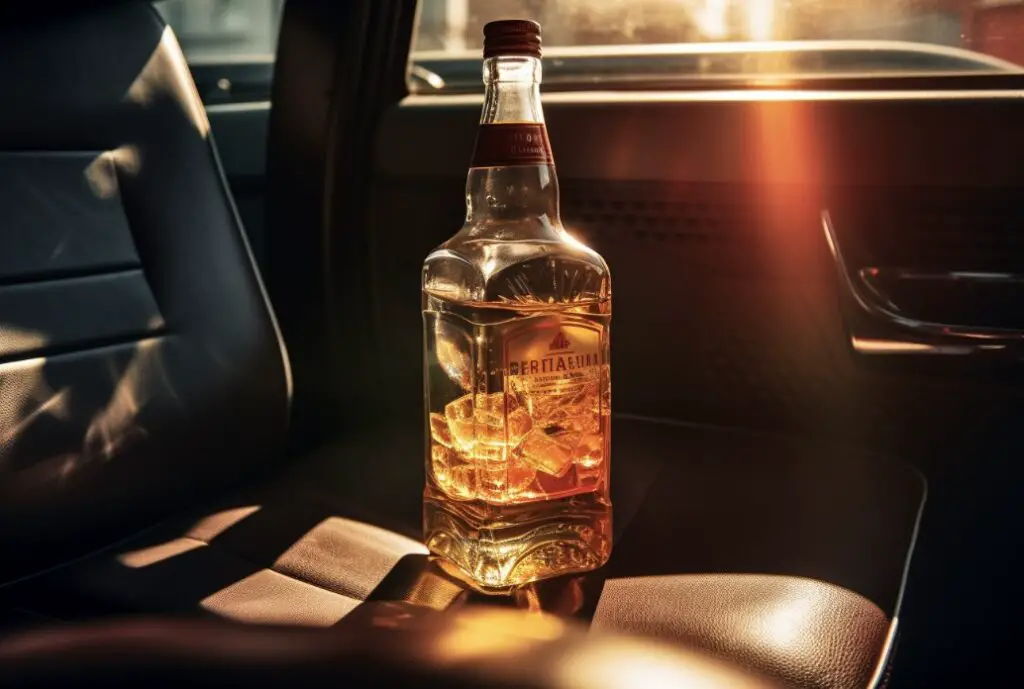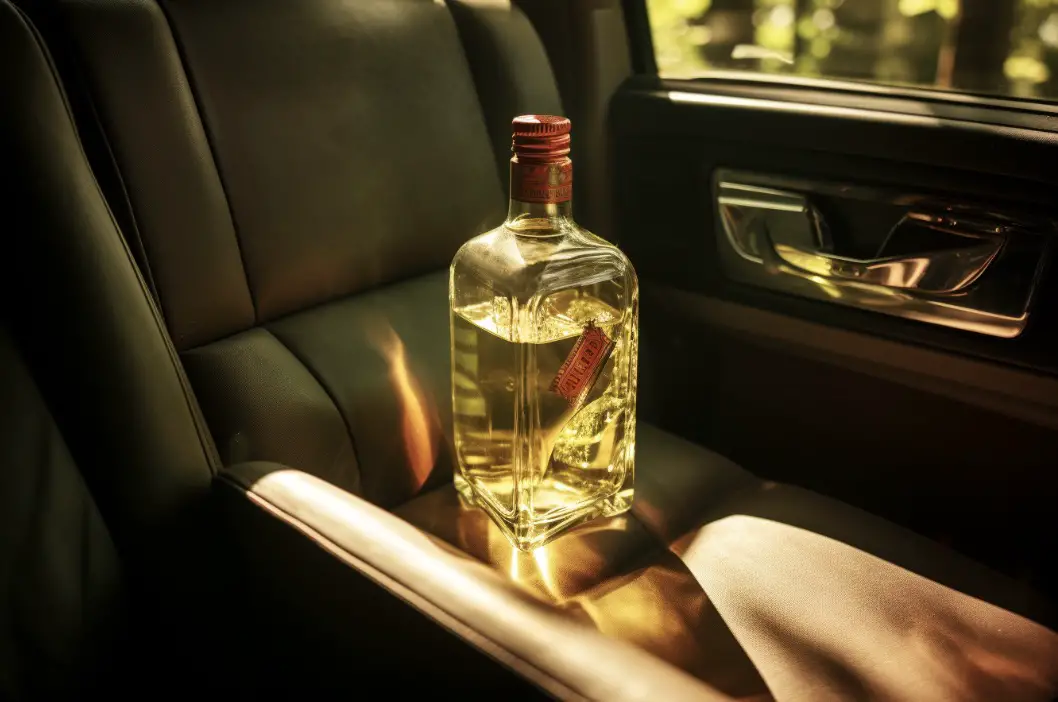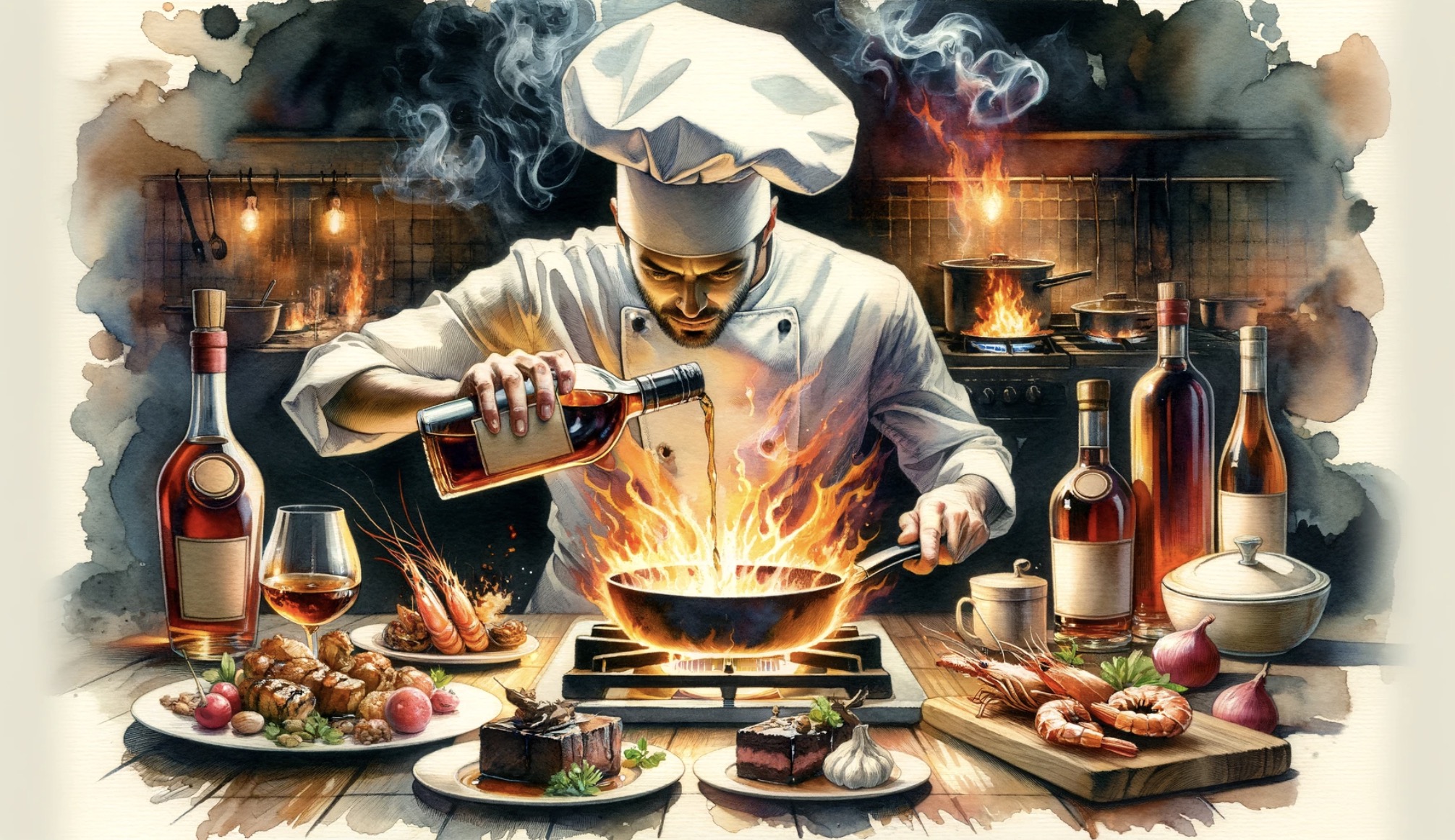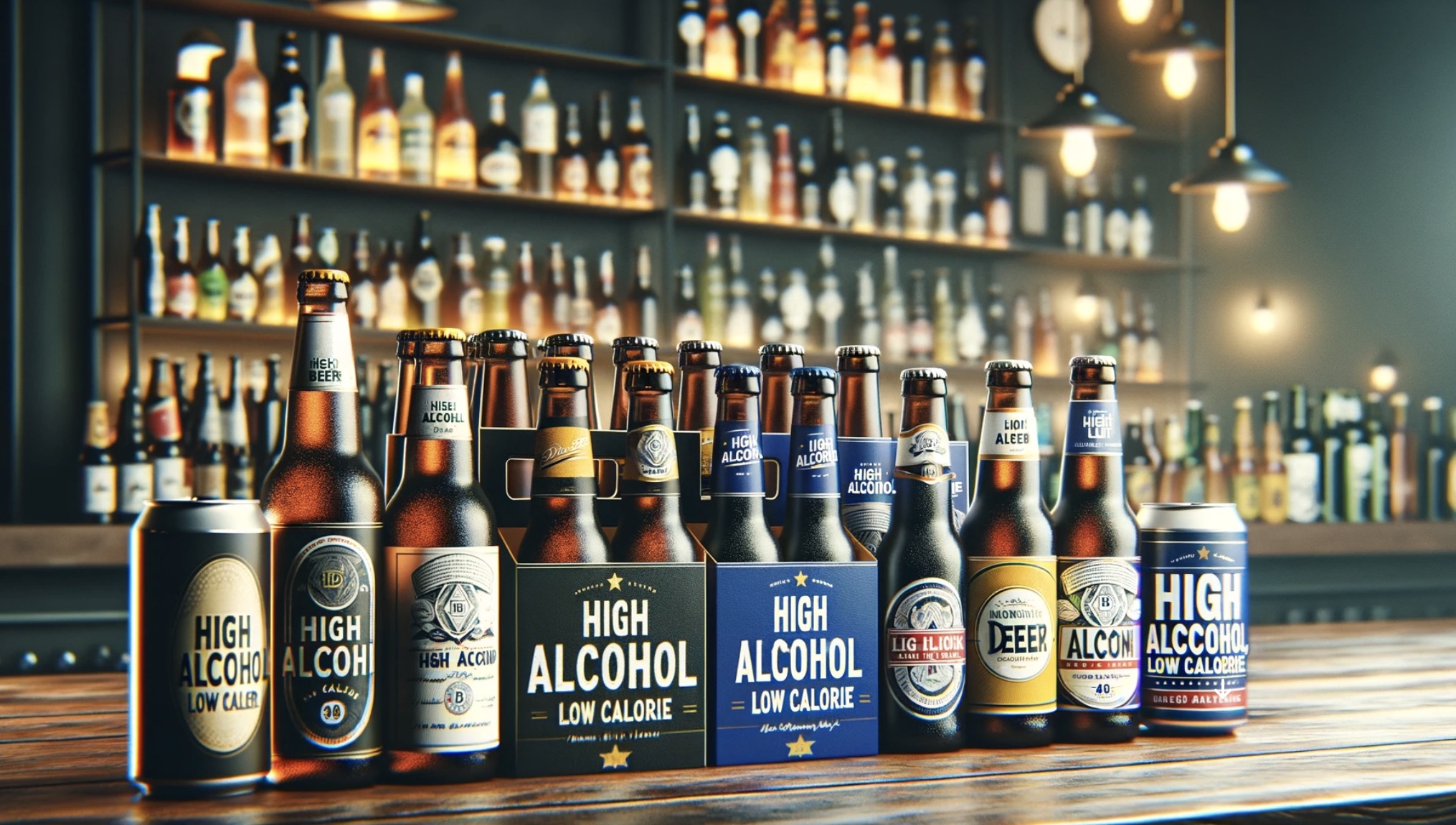As a seasoned brewer and a lover of all things alcohol, I’ve found myself involved in various discussions and debates about the storage and care of liquor bottles. A common question I often encounter is, “Will a liquor bottle explode in a hot car?”.
The short answer is, generally no, most liquor bottles will not explode when left in a hot car.
The highest temperature achieved in a car during summer is around 140F, which is not enough for alcohol or water to evaporate and thus not enough for a bottle to explode under normal conditions.
However, if the bottle has a weakness or is leaking, it might break or leak out a substantial amount of liquor as the pressure increases in the heat.
There are several factors at play that can influence this outcome, including the type of alcohol, the bottle design, and the intensity and duration of the heat exposure. Let’s delve into the details.
How Hot Does a Car Get in Summer?
During the scorching summer months, a parked car can transform into a sweltering oven, subject to intense heat buildup that can reach staggering temperatures.
The extent to which a car heats up depends on various factors, including its color, location (latitude), and local weather conditions.
It is indeed a widely accepted notion that, in hot countries and under the blazing sun, a car can easily reach temperatures exceeding 140°F (60°C) when left parked in direct sunlight.
- Car Color: The color of a car plays a crucial role in determining how hot it gets in the sun. Dark-colored cars, such as black or dark blue, absorb more sunlight and, subsequently, heat up faster and to higher temperatures compared to lighter-colored cars, like white or silver. This is due to the fact that darker colors absorb more of the sun’s radiant energy while lighter colors reflect it.
- Latitude and Local Climate: The geographical location of the car, primarily its proximity to the equator, can significantly impact how hot it gets. Cars parked in regions closer to the equator experience more intense and prolonged exposure to direct sunlight throughout the year, resulting in higher interior temperatures. Additionally, areas with high temperatures and low humidity levels tend to exacerbate the heat inside a parked car.
- Seasonal Variations: While summer is generally associated with scorching temperatures, the time of day and season can influence how hot a car becomes. In the peak of summer, midday sun can be exceptionally intense and raise the interior temperature rapidly. However, even in spring and fall, cars can still become dangerously hot if left exposed to direct sunlight for extended periods.
- Insulation and Ventilation: The design and build of the car, including its insulation and ventilation systems, can impact how effectively it retains or dissipates heat. Modern cars are designed with insulation materials to help maintain a comfortable interior temperature, but these measures can only go so far when subjected to extreme heat.
- Window Tint and Shade: Using window tinting and parking in the shade can significantly mitigate the heat buildup in a parked car. Tinted windows reduce the amount of solar radiation that enters the vehicle, while parking in the shade can provide a substantial reduction in interior temperature compared to being exposed to direct sunlight.
- Duration of Exposure: The longer a car is exposed to direct sunlight, the hotter it will become. Even on moderately hot days, a car left in the sun for several hours can reach dangerously high temperatures. This poses significant risks to occupants and can cause damage to the vehicle’s interior, including dashboard and upholstery.
The extreme temperatures that a car can reach in the summer sun emphasize the importance of taking precautions, such as using sunshades, window tints, and, most importantly, never leaving children, pets, or vulnerable individuals inside a parked car, even for short periods.
The potentially life-threatening consequences of high interior temperatures in parked cars make it essential to be aware of these factors and prioritize safety during hot weather.
The Science Behind Heat and Liquor
To understand why a liquor bottle might or might not explode in a hot car, we need to understand the science behind what heat does to liquor.
Alcohol, like many other substances, expands when it is heated. This means that as the liquor inside the bottle gets hotter, it begins to take up more space. If the expansion is significant enough, it can build up pressure inside the bottle.
However, most liquor bottles are designed to withstand this kind of pressure. This is why most types of liquor can be stored at room temperature without any issues. However, extreme heat can push this design to its limits, and that’s when you might run into problems.
Different Types of Alcohol
Not all alcohol behaves the same way when exposed to heat. Lower proof alcohol (under 24% alcohol by volume) will start to evaporate at around 78 degrees Fahrenheit, and higher proof alcohol will start to evaporate at around 172 degrees Fahrenheit.
So, if your car gets hot enough, you could see some evaporation, which could lead to pressure build-up in the bottle.
This is why it’s generally more of a risk to leave high proof alcohol in a hot car. The higher the alcohol content, the higher the heat tolerance, but also, the greater the potential for pressure buildup.
Bottle Design and Pressure Build-Up
The design of the liquor bottle plays a significant role in whether or not it will explode in a hot car. Liquor bottles are typically made of glass, a material that can withstand high temperatures.
However, the bottle’s shape, size, and closure type all factor into how much pressure it can handle.

Bottles with screw tops or cork stoppers are more susceptible to pressure build-up as the seal is not as strong. If the pressure inside the bottle becomes too great, it can push the stopper out, causing the bottle to “explode.” But this is not a violent explosion, more of a pop and spillage.
Extreme Heat and Alcohol Quality
While a liquor bottle won’t typically explode in a hot car, extreme heat can still have a detrimental effect on the quality of the alcohol. Heat causes alcohol to oxidize faster, which can change its flavor, color, and aroma.
This is especially true for wines and beers, which are more sensitive to temperature fluctuations. So, while your bottle may not explode, the quality of your drink could be compromised.
Real-Life Scenarios
Although it’s not common, there have been instances where liquor bottles have exploded in hot cars. These are usually extreme scenarios where the car was exposed to intense heat for a long period.
However, the more common scenario is coming back to a car to find out that a bottle’s cork or cap has been pushed off due to pressure build-up and the inside of the car is a sticky mess.
Tips for Storing Liquor in a Car
If you absolutely must store liquor in your car, especially during the warmer months, here are some tips to help prevent any mishaps:
– Try to keep the car as cool as possible, park in the shade or in a garage.
– Store the bottles upright to minimize the surface area of the liquor that is exposed to heat.
– Avoid storing high proof alcohol in your car if possible.
– Check the seal on the bottle. Screw tops or cork stoppers can be more susceptible to pressure build-up.
Conclusion
While it’s unlikely that a liquor bottle will explode in a hot car, it’s still possible under extreme conditions. More likely, the heat will affect the quality of the alcohol, and in some cases, cause the bottle’s seal to fail, leading to a mess in your car.
Here are 10 key facts to remember:
1. Alcohol expands when it is heated.
2. Most liquor bottles are designed to withstand pressure build-up.
3. Lower proof alcohol will start to evaporate at around 78 degrees Fahrenheit.
4. Higher proof alcohol will start to evaporate at around 172 degrees Fahrenheit.
5. The design of the liquor bottle plays a role in whether or not it will explode.
6. Bottles with screw tops or cork stoppers are more susceptible to pressure build-up.
7. Heat causes alcohol to oxidize faster, which can change its flavor, color, and aroma.
8. There have been instances where liquor bottles have exploded in hot cars.
9. The more common scenario is a bottle’s cork or cap being pushed off due to pressure build-up.
10. Keeping the car cool, storing bottles upright, avoiding high proof alcohol, and checking the bottle’s seal can help prevent mishaps.
From my personal experience, I always try to avoid leaving liquor bottles in my car, especially during the summer months. Not only do I want to avoid a potential mess, but I also want to ensure that the quality of my alcohol remains intact.
FAQs
Can I leave whiskey in a hot car?
Leaving whiskey in a hot car is not recommended. The high temperatures inside a car can cause the whiskey to expand and contract, potentially damaging the bottle and affecting the quality of the whiskey. It’s best to store whiskey in a cool, dark place to preserve its flavor and integrity.
What happens if alcohol is left in a hot car?
If alcohol is left in a hot car, it can undergo certain changes due to the high temperature. The heat can cause the alcohol to evaporate more quickly, potentially leading to an increase in its concentration. This could result in a stronger alcoholic beverage. Additionally, extreme heat can cause the alcohol to expand and potentially break the container it is stored in, leading to a messy cleanup.
What happens if a bottle of alcohol gets too hot?
If a bottle of alcohol gets too hot, it can cause some problems. The heat can cause the alcohol to expand and potentially break the bottle, leading to a messy and dangerous situation. Additionally, excessive heat can alter the taste and quality of the alcohol, making it less enjoyable to drink. So, it’s best to store alcohol in a cool and dry place to maintain its integrity and flavor.
Is it OK to leave drinks in a hot car?
It is not advisable to leave drinks in a hot car. The high temperatures inside a car can cause the drinks to spoil or potentially become unsafe to consume.
Can you drink alcohol that’s been sitting in your car?
It is not recommended to drink alcohol that has been sitting in your car. The temperature changes and exposure to sunlight can negatively affect the quality and taste of the alcohol. Additionally, it may be illegal to consume alcohol in a vehicle, depending on local laws.
What happens to alcohol when heated?
When alcohol is heated, it undergoes a process called evaporation. This means that the alcohol molecules gain enough energy to break free from the liquid and turn into a gas. So, essentially, the alcohol turns into vapor and dissipates into the air.




